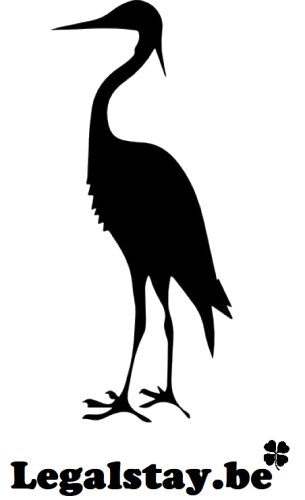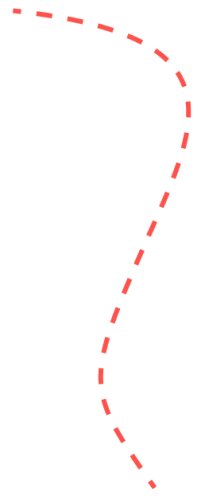Best DUI & DWI Lawyers in Hasselt
Share your needs with us, get contacted by law firms.
Free. Takes 2 min.
List of the best lawyers in Hasselt, Belgium
About DUI & DWI Law in Hasselt, Belgium
Driving under the influence of alcohol or drugs is a criminal offense throughout Belgium, including Hasselt. Police in Hasselt carry out roadside checks and targeted enforcement around nightlife areas, major roads, and during campaigns. If you are suspected of impairment, you can be required to take a breath test for alcohol or a saliva and blood test for drugs. Cases are handled by the Police Court in Hasselt, and penalties can include fines, a driving ban, an alcohol interlock, rehabilitation measures, and in serious or repeat cases even a prison sentence. Insurance and civil liability consequences frequently follow a conviction, especially if there was an accident.
The legal alcohol limit in Belgium is measured either in breath alcohol concentration or blood alcohol concentration. The standard limit is 0.22 mg per liter of breath or 0.5 g per liter of blood. Drug driving laws operate on a near zero tolerance basis for specified illegal substances, with legal thresholds set in blood. Refusing a test is a separate criminal offense that is sanctioned at least as severely as a high test result.
Why You May Need a Lawyer
You face a criminal record, a potential driving ban, and significant fines. A lawyer can assess whether the stop and the tests were lawful, whether the devices were calibrated, and whether your rights were respected. Procedure matters greatly in Belgian traffic law, and procedural errors can affect the outcome.
You may need urgent help after an immediate license withdrawal. A lawyer can request early return of the license from the prosecutor or ask the Police Court to review the measure, and can advise whether to pursue a blood test or other evidence.
If your livelihood depends on driving, a lawyer can argue for the shortest possible ban, for a suspended ban when legally available, or for alternatives such as an alcohol interlock program. Belgium does not issue work only licenses, so skilled advocacy is crucial.
If drugs are alleged, scientific proof and timing are key. A lawyer can review toxicology reports, chain of custody, and potential contamination or medication defenses.
In cases with an accident, injuries, or property damage, you may face civil claims and insurer recourse. Coordinated criminal and civil defense can reduce long term costs.
Non Belgian residents, professional drivers, and students often need tailored advice about cross border consequences, employer obligations, and immigration or study impacts.
Local Laws Overview
Legal limits - alcohol: 0.22 mg per liter of breath or 0.5 g per liter of blood. The same limit generally applies to most drivers. Certain professions may be subject to stricter rules while working under employer or sector regulations.
Roadside procedure: officers can administer a screening breath test. If positive, they can require an evidential breath analysis at the roadside or station. You receive a printout with the result. If a breath test is not possible or you contest a result, a blood test can be ordered. For suspected drugs, police use a saliva screening test followed by a confirmatory blood test in a clinical setting.
Refusal: refusing breath, saliva, or blood testing without a lawful reason is a criminal offense. Penalties for refusal are heavy and typically at least as severe as high alcohol or a positive drug result. Refusal often leads to an immediate license withdrawal.
Immediate measures: police can impose a temporary driving ban for several hours. In serious situations such as high alcohol, drugs, an accident, or refusal, the public prosecutor can order immediate withdrawal of your driving license for up to 15 days, with possible extensions.
Sanctions on conviction: fines that can range from hundreds to several thousands of euros, a driving ban that can run from days to years or be permanent in extreme cases, and possible imprisonment for very high levels, accidents with injuries, or repeat offenses. Courts can order an alcohol interlock, compulsory alcohol or drug education, or a medical psychological assessment. Repeat offenses within a few years trigger higher penalties.
Aggravating factors: very high alcohol levels, combined alcohol and drugs, speeding, minors in the car, accidents, hit and run, and prior convictions. Mitigating factors can include a clean record, quick acknowledgment of responsibility, documented rehabilitation, and verified personal hardship.
Insurance and civil liability: a DUI or drug driving conviction can lead to insurer recourse for damages paid after a crash and higher premiums. A conviction can be recorded on your criminal record, which may affect certain jobs.
Frequently Asked Questions
What is the legal alcohol limit in Hasselt, Belgium
The legal limit is 0.22 mg per liter of breath or 0.5 g per liter of blood. If your result is at or above these limits, you can be prosecuted. Even below the limit, you can be sanctioned if your driving is clearly impaired.
What happens during a roadside alcohol check
The police first use a screening device. If it is positive or you show signs of impairment, they can require an evidential breath analysis and issue a temporary driving ban for several hours. You receive a test report. If breath testing is not possible or you contest, a blood test can be required.
Can I refuse to take a breath, saliva, or blood test
Refusal is a criminal offense with heavy penalties, often comparable to or higher than those for a high alcohol result. Refusal usually triggers an immediate license withdrawal and a court summons.
What penalties do first time offenders face
Expect a fine, a possible driving ban, and administrative measures such as an alcohol education course. In cases with high alcohol levels, drugs, an accident, or refusal, penalties rise and can include imprisonment. The court decides based on the facts and your record.
Will I lose my license immediately
Police can impose a short temporary ban. In serious cases the prosecutor can order an immediate withdrawal of your license for up to 15 days, which can be extended. A lawyer can ask for early return or review by the court.
Does Belgium offer a work only or restricted license
No. Belgian law does not provide a work only or restricted driving permit. The court can shorten a ban or in some cases suspend all or part of it, or order an alcohol interlock as an alternative. Legal advocacy is important if you need to keep driving for work.
How are drug driving cases handled
Police use a saliva test to screen, then a confirmatory blood test. Belgium sets legal thresholds for specific illegal drugs. Presence above the threshold is an offense. Combined alcohol and drugs is treated as an aggravating factor.
What is an alcohol interlock
An alcohol interlock is a device installed in your vehicle that requires a clean breath sample before the engine starts. Courts can order it, often for repeat or serious offenses, sometimes in place of part of a driving ban. You pay installation, monitoring, and program costs and must follow guidance from recognized centers.
Will a DUI or drug driving conviction appear on my criminal record and affect insurance
Yes. It is a criminal matter and can appear on your record. Insurers may increase premiums, restrict coverage, or seek reimbursement for payouts after an accident if you were impaired.
I am not a Belgian resident. What happens to my foreign license
Police can issue an immediate driving ban on Belgian territory and prosecutors can order temporary withdrawal. The Belgian court can impose a driving ban that applies in Belgium. Your home country may be informed. Cross border effects vary, so seek advice quickly.
Additional Resources
Police Court of Hasselt - handles traffic offenses including DUI and drug driving cases.
Public Prosecutor's Office Limburg - directs prosecutions and can order immediate license withdrawals in serious cases.
Local Police Limburg Regio Hoofdstad - conducts roadside checks and prepares official reports.
Federal Police Traffic - coordinates national road safety campaigns and enforcement guidance.
Federal Public Service Justice - publishes information on criminal procedure and court organization.
Federal Public Service Mobility and Transport - provides road safety policy, vehicle, and licensing information.
Vias Institute - national road safety and rehabilitation programs such as alcohol and traffic education.
GOCA Vlaanderen - recognized centers for vehicle inspection and certain driver assessments ordered by courts.
Vlaamse Stichting Verkeerskunde - Flemish road safety foundation involved in driver improvement courses.
Bureau voor Juridische Bijstand Limburg - legal aid office that can help assess eligibility for a pro deo lawyer.
Next Steps
Step 1 - Do not ignore documents. Keep the ticket, test printout, immediate withdrawal notice, and any summons. Note dates and deadlines.
Step 2 - Contact a traffic and criminal law lawyer in Hasselt as soon as possible. Early advice can influence testing choices, license measures, and evidence preservation.
Step 3 - Write down what happened. Include where you were stopped, timing, food and drink intake, medications, witnesses, and interactions with police. Preserve receipts and phone location data if helpful.
Step 4 - Gather records. Medical prescriptions, proof of employment, dependency on driving for family or work, prior clean record, and proof of starting voluntary counseling can be useful in mitigation.
Step 5 - Discuss strategy. Your lawyer can assess the legality of the stop, device calibration, testing protocols, rights to an interpreter, and whether to request a blood test or expert review.
Step 6 - Manage license issues. Ask your lawyer about requesting early return of your license from the prosecutor or court and about the impact of any extensions.
Step 7 - Prepare for the Police Court. Your lawyer will advise whether you should attend, what to say, and how to present mitigating evidence. If you do not speak Dutch or French comfortably, ask for an interpreter.
Step 8 - Plan for rehabilitation. Starting an approved alcohol or drug education course early can show responsibility and may help reduce penalties. If an alcohol interlock is likely, learn about costs and obligations in advance.
Step 9 - Address insurance and civil claims. Notify your insurer promptly. If there was an accident, coordinate criminal and civil defense to limit recourse and damages exposure.
Step 10 - Follow all orders. Comply with any driving ban, interlock, training, or assessments. Non compliance can lead to tougher sanctions. Keep proof of completion to present to the court or authorities.
This guide is informational and not a substitute for tailored legal advice. Belgian law and local practice evolve, and outcomes depend on your specific facts. For the best results, consult a qualified lawyer in Hasselt without delay.
Lawzana helps you find the best lawyers and law firms in Hasselt through a curated and pre-screened list of qualified legal professionals. Our platform offers rankings and detailed profiles of attorneys and law firms, allowing you to compare based on practice areas, including DUI & DWI, experience, and client feedback.
Each profile includes a description of the firm's areas of practice, client reviews, team members and partners, year of establishment, spoken languages, office locations, contact information, social media presence, and any published articles or resources. Most firms on our platform speak English and are experienced in both local and international legal matters.
Get a quote from top-rated law firms in Hasselt, Belgium — quickly, securely, and without unnecessary hassle.
Disclaimer:
The information provided on this page is for general informational purposes only and does not constitute legal advice. While we strive to ensure the accuracy and relevance of the content, legal information may change over time, and interpretations of the law can vary. You should always consult with a qualified legal professional for advice specific to your situation.
We disclaim all liability for actions taken or not taken based on the content of this page. If you believe any information is incorrect or outdated, please contact us, and we will review and update it where appropriate.









